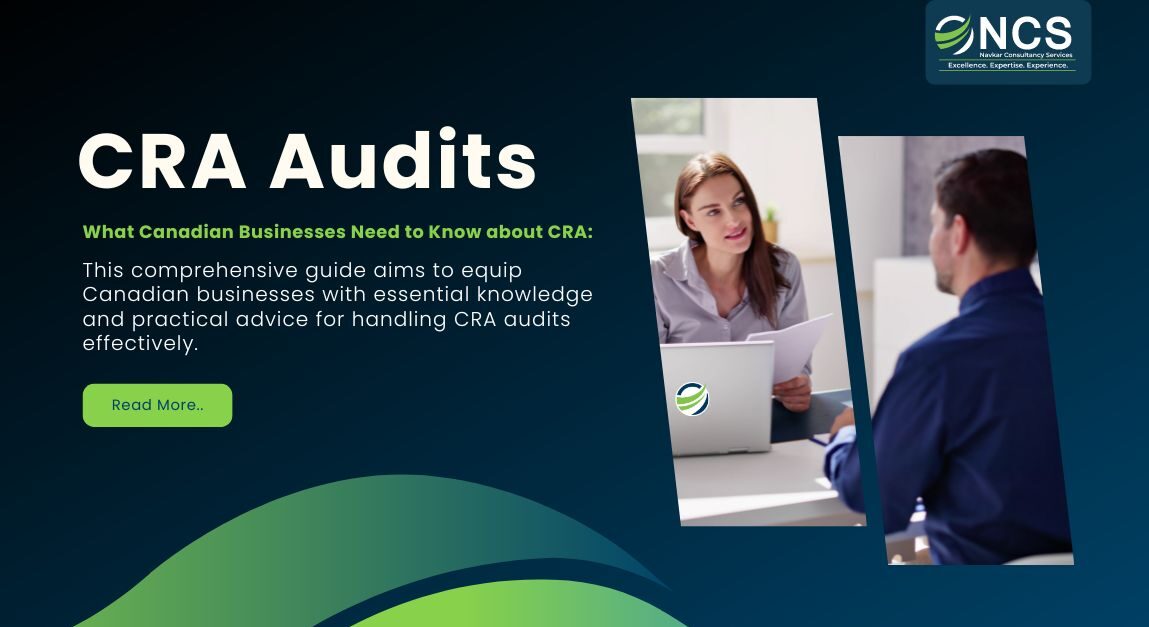A Step-by-Step Framework for Handling CRA Audits
Canada Revenue Agency (CRA) audit can be a daunting experience for any business. Understanding what to expect, how to prepare, and the steps to take if audited can significantly ease the process and help ensure a favourable outcome. This comprehensive guide aims to equip Canadian businesses with essential knowledge and practical advice for handling CRA audits effectively.

What to Expect During a CRA Audit
A CRA audit involves a thorough review of a business’s financial records to ensure compliance with tax laws and regulations. Here’s what typically happens:
1. Notification: The process begins with a notification letter from the CRA. This letter will outline the scope of the audit, the tax years under review, and the information required.
2. Information Gathering: The CRA auditor will request various documents such as financial statements, receipts, invoices, bank statements, and tax returns.
3. Review Process: The auditor will analyze the provided documents, looking for discrepancies or areas requiring further clarification.
4. Meetings: You may be asked to attend meetings or provide additional explanations regarding your financial records.
5. Audit Report: After the review, the auditor will prepare a report detailing their findings. If any discrepancies are found, the report will include proposed adjustments to your tax filings.

How to Prepare for a CRA Audit
Preparation is key to handling a CRA audit smoothly. Here are some steps to help you get ready:
1. Organize Your Records: Ensure that all your financial records are complete, accurate, and well-organized. This includes income statements, expense receipts, payroll records, and any other relevant documents.
2. Review Your Tax Filings: Double-check your past tax returns for any errors or omissions. Be prepared to explain any unusual entries or discrepancies.
3. Understand the Audit Scope: Familiarize yourself with the specific areas the CRA intends to review. This will help you focus your preparation efforts.
4. Consult a Professional: Consider seeking advice from an accountant or tax professional experienced in CRA audits. They can provide valuable insights and help you navigate the process more effectively.

Steps to Take If Audited
If you find yourself subject to a CRA audit, follow these steps to manage the process effectively:
1. Respond Promptly: Acknowledge receipt of the audit notification and comply with all information requests within the specified timelines.
2. Be Cooperative: Maintain a cooperative and professional attitude with the auditor. Provide clear and concise explanations for any queries.
3. Document Everything: Keep detailed records of all communications and documents exchanged with the CRA. This can be crucial if there are any disputes or misunderstandings.
4. Seek Professional Help: If you’re unsure about any aspect of the audit or feel overwhelmed, don’t hesitate to seek assistance from a tax professional. They can represent you and ensure your rights are protected.
5. Review the Audit Report: Carefully review the auditor’s report and the proposed adjustments. If you disagree with any findings, you have the right to appeal.

Conclusion:
Facing a CRA audit can be stressful, but with proper preparation and a clear understanding of the process, you can navigate it successfully. Organize your records, seek professional advice when needed, and maintain open and cooperative communication with the CRA. By taking these steps, you can minimize potential issues and ensure your business remains compliant with Canadian tax laws.
NCS CANADA is an outsourcing firm providing a range of accounting, tax preparation, and related services to Canadian CPAs, corporations, and offshore accounting professionals. Their expertise can be invaluable in helping businesses manage their finances effectively and comply with tax regulations, reducing the stress associated with CRA audits.






